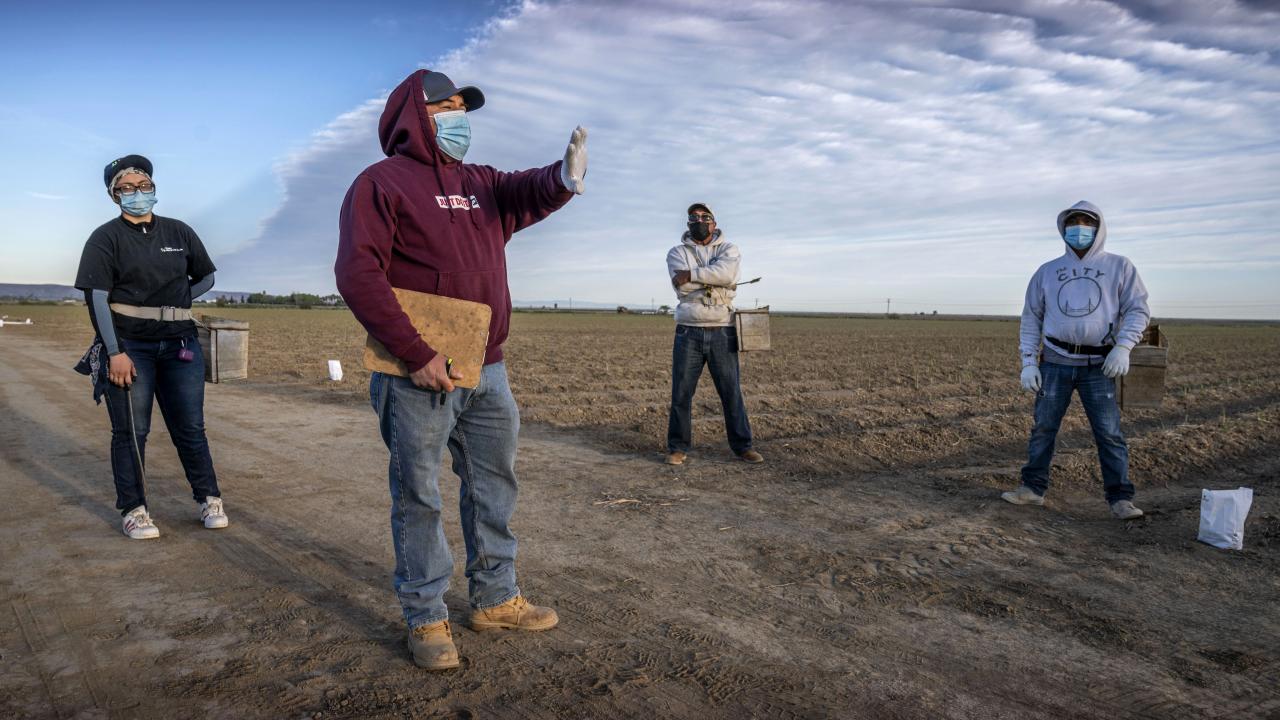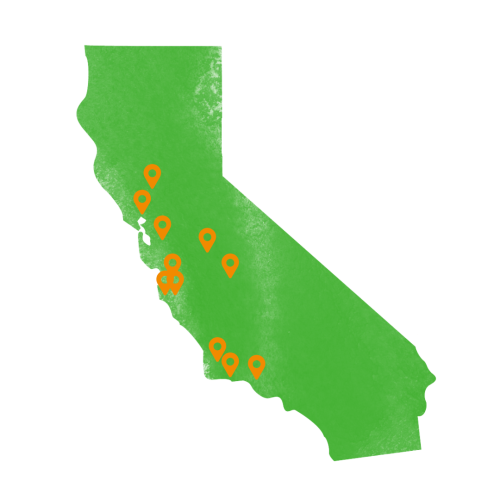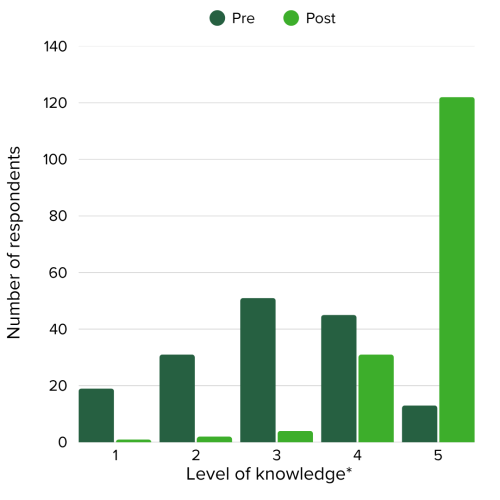
WCAHS Frontline Supervisor Training Program

Frontline supervisors, sometimes referred to as foreman or mayordomo/as, are responsible for overseeing the daily performance of agricultural workers. Their responsibility encompasses everything from time management, assignment of tasks, and maintaining a safe work environment. However, limited training opportunities exist for frontline supervisors and those that do exist can be expensive or time-consuming. WCAHS developed the California Frontline Supervisor Training Program to fill this gap.
Our training is three hours long, held in Spanish and in-person, and supports frontline supervisors with taking a leadership role for health and safety in the workplace. The training is highly interactive and involves group work in which participants can put the lessons into practice using real-world scenarios. Topics include a review of the Cal/OSHA 3203 requirements and how frontline supervisors can support a company’s Injury and Illness Prevention Program (IIPP), as well as risk reduction controls. In addition to our in-person frontline supervisor trainings, we offer webinars and a video series specifically geared toward educating frontline supervisors.
In-person frontline supervisor trainings have been conducted in agriculture-rich regions across the state including in Salinas, Napa, and Monterey (Figure 1). The majority of training participants work in berries (Figure 2) and nearly half of those who attended our frontline supervisor training were hired directly by a grower rather than by a farm labor contractor (Figure 3). Notably, a quarter of participants did not know the category of their employer.


We conducted a pre- and post-training assessment during the in-person trainings to ensure that the California Frontline Supervisor Training Program is effective at improving knowledge. Results showed that there was an overall gain of knowledge across all training topics when compared to the pre-training assessment. For example, when asked to rank their knowledge in relation to this statement, “I have the knowledge and skills necessary to supervise and support health and safety in the workplace?”, supervisors showed a strong feeling that their knowledge increased after the training (Figure 4). Additional questions support that our training increase participants’ understanding of the topics covered including the hierarchy of controls and hazard mapping.
Yes, now I know how to better talk to the workers, give them better instructions. I can also demonstrate to my bosses that I take care of the workers, and I know about safety.”
—Frontline Supervisor Training participant
Three months after the training, a subset of attendees were called to learn if supervisors were putting what they learned into practice. One respondent said, “Yes, I use a little notebook (to write) if something happens with the workers, to have a record. I write who [was affected], what [happened], and who I reported [the incident] to.” This highlights that frontline supervisors are using the skills they learned in the training to improve worker health and safety. Another respondent said, “Yes, now I know how to better talk to the workers, give them better instructions. I can also demonstrate to my bosses that I take care of the workers, and I know about safety.”
Since February 2024, WCAHS has reached over 1,002 specialty crop supervisors through our in-person trainings, webinars, and videos. If you would like a training held for your frontline supervisors, please contact terandrews@health.ucdavis.edu.
Funding for this training was made possible by a grant/cooperative agreement from the U.S. Department of Agriculture (USDA) Agricultural Marketing Service. Its contents are solely the responsibility of WCAHS and do not necessarily represent the official views of the USDA.
